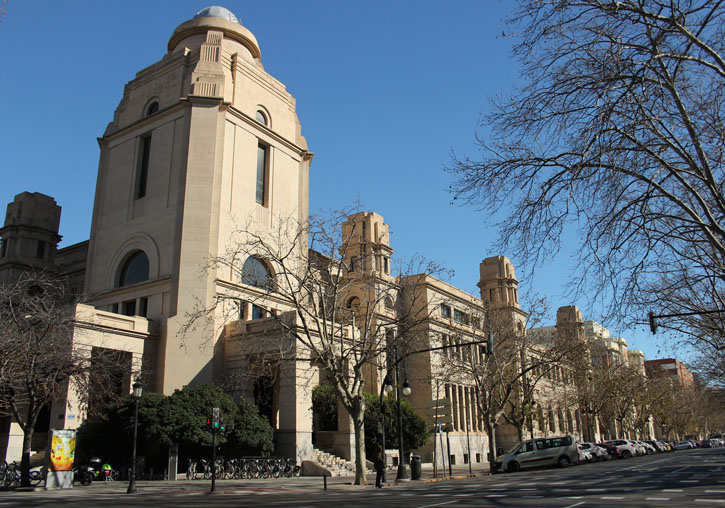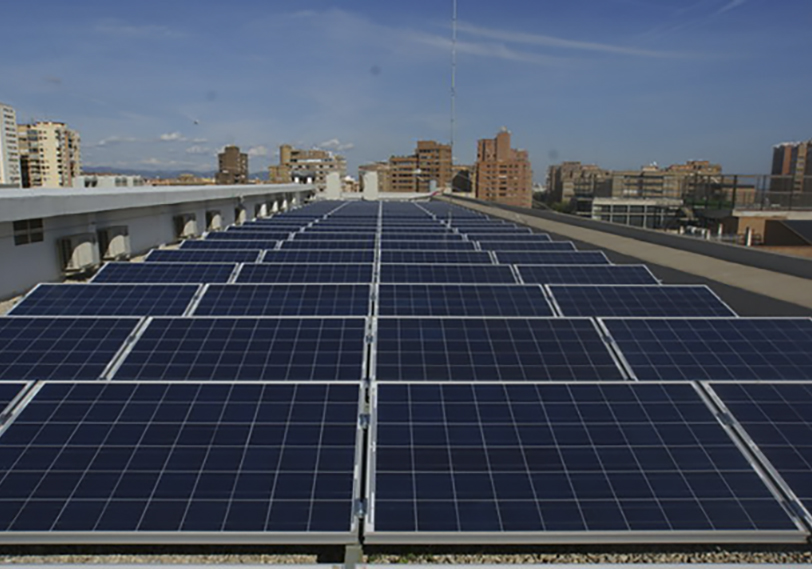The University of Valencia gets three grants from the BBVA Foundation for cutting-edge scientific research teams
- Scientific Culture and Innovation Unit
- April 2nd, 2020

The BBVA Foundation has awarded a total of 249,588.08 euros to three research projects of the University of Valencia, one in the area of Big Data and two in Digital Humanities, within its Program of Aid to Scientific Research Teams 2019, with 25 projects financed. The three of the University are SCALE (on algorithms to analyse the human impact on the biosphere), SeMap (a semantic website to connect the Spanish cultural heritage) and ESPAREL (a digital platform to organise information on the transition from the Old Regime to Liberal state in Spain).
The SCALE project (Causal Inference in the human-biosphere coupled system) is led by Gustau Camps-Valls, Full Professor of Electronic Engineering and researcher at the Image Processing Laboratory (IPL) of the University of Valencia. This project has received a grant of 99,992.5 euros. His team will analyse, with new mathematical techniques, the impact of socio-economic transformations on the biosphere. The aim is to advance in the understanding and sustainable development of today’s society.
Current machine learning algorithms are effective at identifying patterns in large databases but fail to identify more abstract relationships such as cause and effect. The SCALE project aims to advance the field of causal inference from data, developing new algorithms that understand problems and automatically generate causal explanations. Jordi Muñoz Marí, Valero Laparra, Maria Piles and Adrián Pérez (University of Valencia); Miguel Mahecha (Max Planck Institute for Biogeochemistry); and Jakob Runge (German Space Agency) also participate in the project.
The SeMap project (Advanced access to cultural assets through the Semantic web and spatio-temporal Maps) is led by Cristina Portalés Ricart, Ramón y Cajal female researcher of the Institute of Robotics and Information and Communication Technologies (IRTIC), who leads a multidisciplinary team with specialised personnel in ICT and in Art History. The group works to develop a graph or knowledge system that allows establishing semantic relationships between the pieces of the CER.ES database (300,000 objects from 113 museums in Spain) and visualise innovatively these elements through spatio-temporal maps that link them, even if they are in different collections.
With the project, financed with 74,983.35 euros, it will be possible to carry out advanced searches and establish connections according to very varied aspects, in addition to displaying them on a website, a fact that will multiply the possibilities of taking advantage of cultural heritage in sectors such as education, tourism or ICT. This material, now limited to specialists, will be opened to wider audiences. The University of Valencia team is also made up by Pedro Morillo, Inmaculada Coma, José Javier Samper, Ester Alba, Jorge Sebastián and Adrià Besó.
The ESPAREL project (Spain, from the Old Regime to the Liberal State) is directed by Daniel Aurelio Fabregat, Full Professor at the Department of Economic Analysis at the University of Valencia, and receives funding of 74,612.23 euros. Its objective is to develop a digital platform to explore the transition from the Old Regime to the liberal State, one of the most important episodes in Spanish history due to the abolition of lordships and confiscations, as well as the territorial division into provinces. This platform will facilitate the organisation of statistics for the time period, a gap that currently limits historical study.
Thus, the project links the information available in the 1787 Census (territorial planning of the Old Regime) with that established by the liberal State during the first half of the nineteenth century. The latter was the one that laid the foundations for the existing territorial administration today. ESPAREL will digitise and will geo-reference the information on a collaborative open access platform on web support and for mobile devices. The team includes Julio Martínez Galarraga, Alfonso Díez Minguela and Alicia Gómez Tello (University of Valencia) and Francisco José Beltrán Tapia (Norwegian University of Science and Technology).
BBVA grants
These grants for research projects are a commitment to promoting scientific research and its projection to society as a way to expand individual and collective opportunities and effectively address the main challenges of the twenty-first century. The subject areas of the call are Biomedicine, Ecology and Conservation Biology, the Digital Economy and Society, Digital Humanities and Big Data, each endowed with 5 grants and to which 469 applications have been submitted.
Categories: Investigació a la UV , Grups de recerca , Institut Universitari d'Investigació de Robòtica i Tecnologies de la Informació i Comunicació (IRTIC) , Laboratori de Processament d'Imatges (IPL) , Cultura Científica , Facultat de Geografia i Història , Facultat de Física , Difusió i comunicació científica , Internacionalització recerca , Recerca, innovació i transferència
















